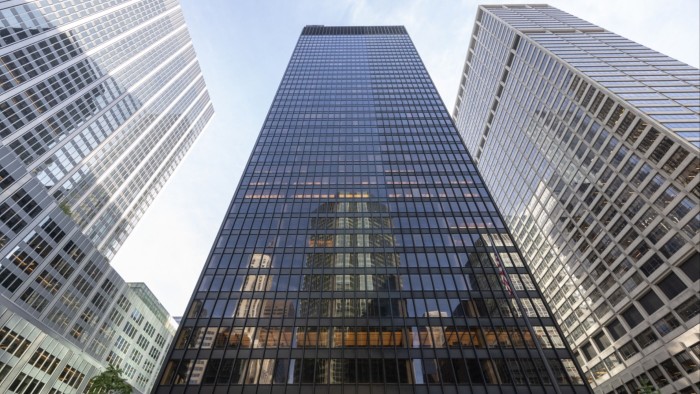Stay informed with free updates
Simply sign up to the Property sector myFT Digest — delivered directly to your inbox.
The world’s financial stability watchdog has called for regulators to tackle “vulnerabilities” in the $12tn commercial property market stemming from high levels of debt, liquidity mismatches and a lack of data on banks’ exposure to the sector.
The Financial Stability Board said the commercial property market was more volatile than other assets and could be hit by further declines in demand for offices and retail space, as well as by extreme weather and energy efficiency regulations.
The warning by the FSB on Thursday comes after commercial property investors went through a period of stress, with demand for offices hit by an increase in remote working in the pandemic and pressure on financing structures from higher interest rates.
The watchdog’s report concluded that commercial real estate had so far “weathered the recent adverse developments”. It attributed this “benign outcome” to the fact that the downturn has only hit parts of the market, some distressed borrowers have refinanced and leverage levels are lower than in previous crises.
But it warned that non-performing loans on commercial real estate lending for office buildings by US and Australian banks had been “increasing significantly” in 2023.
Interest rates for commercial real estate-backed mortgage securities (CMBS) which package up loans in the sector, had risen sharply compared to other corporate loans, the FSB said.
“Distress was evident in multiple segments” of the CMBS market “with office and retail segments having the highest rate at 12.6 per cent and 11.2 per cent respectively, as of September 2024,” it said.
Financial leverage among commercial real estate investors seems larger than at other kinds of non-bank entities, the report found, estimating the aggregate debt in the sector globally was 45 per cent of total assets.
It warned there was “a tail” of real estate investment funds and other property funds in the US, Canada, Singapore and Germany that have “large levels of leverage with debt being at least three times equity”.
Banks still have the most exposure to commercial real estate, worth about $8.5tn globally, the report said. It said banks had “complex interlinkages” with non-bank commercial property investors, raising the risk of property shocks “spilling over to the banking system”.
But it said there were still “considerable data gaps” on the links between banks and such non-bank investors in commercial property and called on regulators to close such gaps.
The FSB has no legally binding powers of its own but brings together the world’s top central bankers, finance ministers and regulators to agree on a common global framework for financial regulation.
When the pandemic hit, a number of open-ended property funds were forced to prevent investors from cashing out by introducing “gates” or suspending redemptions because they could not sell illiquid property assets in time.
The FSB said some funds still “show significant liquidity mismatches and may therefore be vulnerable to runs”. It called for regulators to implement measures to address such issues, citing how Germany introduced minimum holding periods for property fund investors and Italy made all property funds closed-ended.
“Ongoing monitoring of the market is warranted given the more volatile performance” of commercial property compared to other assets, the FSB said.
Bank of England governor Andrew Bailey is due to take over as FSB chair next month from Klaas Knot, who is also stepping down as president of the Dutch central bank.




